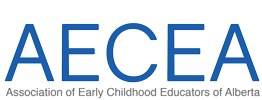RIRO is designed to reach young children from birth to seven years, RIRO works by laying a strong foundation of thinking and coping skills that support resilience in the adults who care for and work with them. RIRO teaches "3Rs of Resilience"– skills to help Relax, Reflect and Respond effectively to life's challenges.
The resiliency skills help adults and children develop several critical abilities associated with resilience:
- being in charge of our emotions
- controlling our impulses
- analyzing the cause of problems
- empathizing with others
- believing in our competence
- maintaining realistic optimism
- reaching out to others and opportunities
This 12-hour RIRO training gives professionals skills and theory to support a relationship-based reflective practice and provides a framework for creating a "culture of resilience" in programs serving young children.
Part 1 helps adults build their own foundation of the critical resiliency abilities described above. Participants learn resiliency skills they can model with children and families. Specifically, they learn to:
- Identify and strengthen critical abilities associated with resilience
- Use strategies to stay calm and focused in stressful times
- Identify how their thoughts can affect their ability to cope with stress and challenges
- Challenge thinking habits that hinder resilience
- Generate alternative ways to handle conflict, problems and stress.
In Part 2 of the program, participants learn to apply the skills with children. They learn to:
- Model the skills and foster resilience in the children around them
- Use their own resiliency skills to increase their understanding of children's behavior
- Incorporate resiliency skills into their work setting by using child-friendly approaches such as children's literature, puppets, and play-based activities.
Location:
Online via Zoom
Date & Time:
January 8, 15, 22, 29, 2024 6:30 pm - 9:30 pm
For more information and to register, go here.
